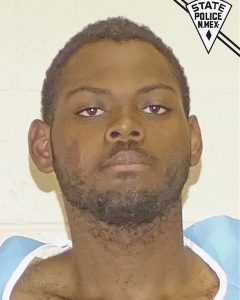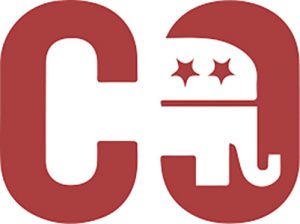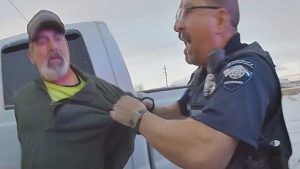by Nancy Christofferson
LA VETA — This is a story that has been waiting for a long time to be told. It’s rather personal, in a way, because it is about my own all-time favorite La Veta character. And now it is time to tell the story because the subject died 80 years ago, on Dec. 3, 1932.
It’s about William Hibben Woodruff. I first ran across his name in 1981 while reading the old La Veta Advertisers of 1895. It seems he had already made his mark on the town by 1895, and certainly on the editors. Hardly an issue was released without mentioning “young Will.” Through the ensuing years I have had the great good fortune to meet or correspond with one of W.H. Woodruff’s children, Colonel Harold D. “Chips” Woodruff, two of his grand-children and three of his great-grandchildren, George Hibben, Kenneth Woodruff, Dawn Gothro and Dave Woodruff. It is they who provided the information about W.H.
Then in the 1896, papers W.H.’s siblings, Bel and Carrie Hibben, came to La Veta from Xenia, Ohio. Xenia is not a large town, or a noted one, unless you follow tornado history, but I happened to have been born there, so my interest in the family was further tweaked.
So here, at long last, is the story of Will Woodruff.
William Woodruff was born Feb. 8, 1866 in Clinton County, Ohio. When he was just five months old, his father died, evidently from the lingering effects of a severe sunstroke suffered while he was following General Sherman on his infamous March to the Sea during the Civil War. Joseph Oliver Woodruff was discharged from the Army because of this ailment, and was just 28 at the time of his death.
His widow married his uncle, William Hibben; she was 28, he was 46. Sarah Woodruff had four children at the time of her husband’s death. She and Hibben had seven more, including Bellmar “Bell” and Caroline ”Carrie” and Eliza, called Lida. Instead of changing his name to match his mother and siblings, Will inserted Hibben as his middle name.
At the tender age of 16, the family accounts say, “young Will” traveled to La Veta where his aunt, Elizabeth Dye, was living. How he spent the 1880s is unknown, though by 1888 he was working for the Alamo Hotel on Ryus Avenue, evidently as a desk clerk. He is not included in the 1885 census so may have been living elsewhere and working at that time.
On May 18, 1890, Will married Ella May Arnold, the daughter of the widow Mary Smith Arnold. The family had come from Johnson County, Kansas in a covered wagon in the early 1870s, and settled in the Trinidad area. Along the way, Ella’s father had died, and her mother had full care of her family of five children. There may have been a sixth, Ira A., who died in 1892.
Will and Ella also had at least five children, William Ray in 1892, Velma in 1896, Kenneth Delmar, “KD” in 1900, Olin in 1902 and Lynn in 1908. It is probable they had a sixth, because Will bought a lot and buried someone in the La Veta Cemetery at an unknown but early date. The grave marker was wooden, and was removed in the 1980s along with others that had lost their writing.
Ella had health problems, not the least of which was rheumatism which caused her a great deal of pain. She spent much of her summers at the Sulphur Springs taking medicinal baths which relieved her. She relied on her sisters and mother for assistance with chores and child care.
Will remained with the Alamo Hotel. In 1895 he painted a new hotel sign, gaining accolades from the Advertiser as “quite an artist.” Then he went to work for Dave Ryus in the general store.
On March 23, 1898, Will received his appointment as postmaster. His assistant was his sister Lida, who resigned in 1902 to marry Henry Martin and become mother of the ubiquitous “Martin Brothers of La Veta.” The post office was located in the old Ryus home next to his corner store at Main and Ryus. Will hit the local editor’s funny bone when he installed a cuspidor in the office, and wrote upon it “Please Contribute,” a polite way of saying “don’t spit on the floor!”
When his step-father Hibben died, Will was included in the bequests, and he used his money to buy real estate. He owned several homes in town, including the house next to Ryus’s store and one he had laboriously moved from the west side of the Cucharas River to Francisco Street. In the post office, he sold books and periodicals. He gradually increased the stock so that soon he was renting more of the premises.
With a partner, Joe K. Kincaid, Will bought the Ryus store in 1900. He sold out his interest after a year or so, but kept ownership of the house next door, which he had enclosed with a picket fence and added rooms and porches on to.
In 1904, W.H., having outgrown the sobriquet Will, began an important building project. It was a three-sided stone business building at 208 S. Main. The fourth wall was that of the former Masonic building, for which he received permission to use as his south wall. He rented this out, and it soon became the long-time home of the Advertiser and the office of Mountain States Telephone. William Fey was his contractor.
In 1906 he got the building bug again, and had erected the stone building at 206 S. Main. In order to put this up, he had to remove the south part of his home. Here he opened the Profit Sharing Cash Store, handling clocks, jewelry, hardware, confectionery, Edison “talking machines” and musical instruments. He also sold real estate and Phoenix, later Aetna, fire insurance. Then he moved the post office there.
W.H. in 1908 removed the house next door, literally, and completed his final construction project. This was a bakery at 204 S. Main. He had previously had bake ovens installed behind his home, probably to supply those confectioneries he sold. It quite soon became Fred Klein’s bakery, then Allen Roush’s, and then morphed into a bakery and restaurant called the American Café. Locals mostly remember it as Town Hall.
Continued next week . . . .

Breaking news: Results of Walsenburg Mayor race and recall election
Gary M. Vezzani was elected Walsenburg’s mayor in Tuesday’s special mayoral election/recall vote. Preliminary results announced Tuesday night show that both Nick Vigil in Ward



